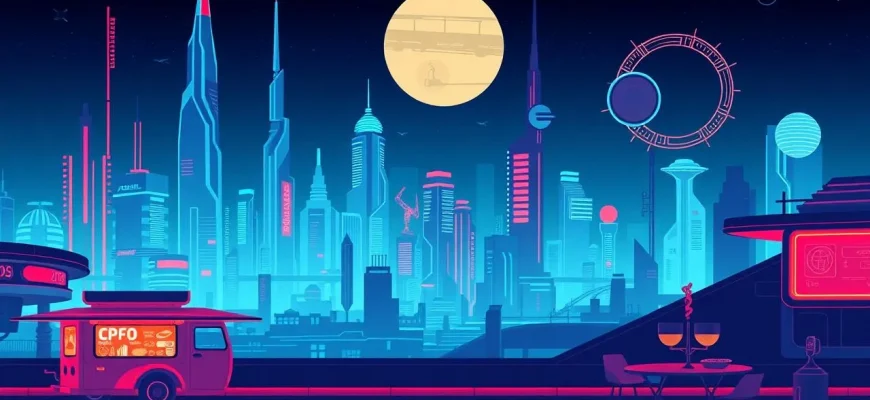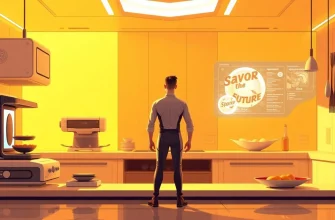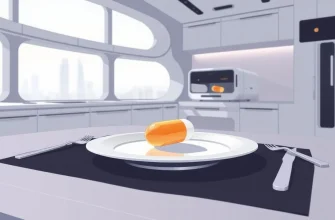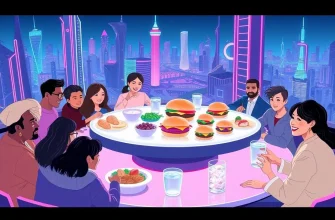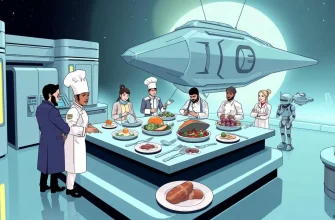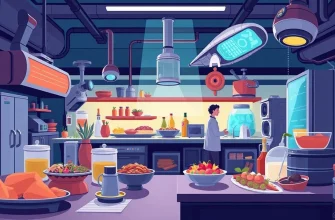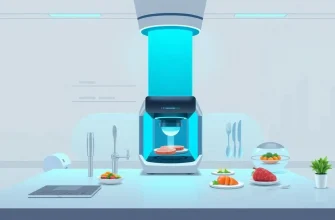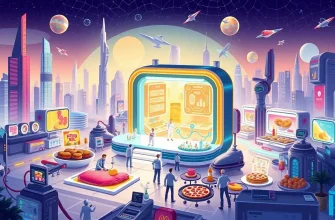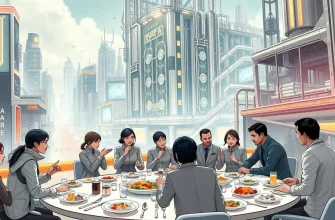Imagine a world where your meal could be a portal to another dimension, or where food itself is the star of the show. This curated list of 10 sci-fi films delves into the fascinating intersection of futuristic technology and gastronomy. From genetically modified crops to meals that defy the laws of physics, these movies offer a feast for the imagination. Whether you're a foodie or a sci-fi enthusiast, this collection promises to tantalize your taste buds and spark your curiosity about the future of food.
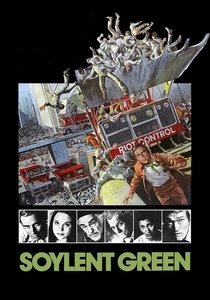
Soylent Green (1973)
Description: In a dystopian future where overpopulation has led to food scarcity, Soylent Green offers a solution in the form of a mysterious food product. The film explores the dark secrets behind this new food source, making it a staple in the sci-fi food genre.
Fact: The film was inspired by Harry Harrison's novel "Make Room! Make Room!" and its title became synonymous with food made from human remains.
 Watch Now
Watch Now 
Brazil (1985)
Description: In this dystopian satire, food is one of the many aspects of life controlled by an oppressive bureaucracy, with scenes highlighting the absurdity of food distribution in a totalitarian society.
Fact: Directed by Terry Gilliam, the film's surreal visuals and dark humor have made it a cult classic.
 Watch Now
Watch Now 
The Matrix (1999)
Description: While not primarily about food, the film's concept of humans being used as an energy source by machines, fed through a simulated reality, touches on the theme of food as sustenance in a dystopian future.
Fact: The film's iconic "red pill or blue pill" scene has become a cultural reference for choosing between reality and illusion.
 Watch Now
Watch Now 
The Day After Tomorrow (2004)
Description: Although primarily a disaster film, it includes scenes where survivors must find food in a frozen, post-apocalyptic world, showcasing the importance of food in survival scenarios.
Fact: The film was criticized for its scientific inaccuracies but praised for its special effects.
 Watch Now
Watch Now 
The Island (2005)
Description: In this film, clones are raised to provide organs and other body parts for their human counterparts, with food being a controlled aspect of their lives, highlighting the commodification of life and sustenance.
Fact: The film was directed by Michael Bay, known for his action-packed movies, and features a strong performance by Ewan McGregor.
 Watch Now
Watch Now 
Cloudy with a Chance of Meatballs (2009)
Description: This animated film features a scientist who invents a machine that turns water into food, leading to a town where food literally falls from the sky. It's a whimsical take on the sci-fi food theme, perfect for all ages.
Fact: The film was based on the children's book by Judi and Ron Barrett, but the movie's plot diverges significantly from the source material.
 Watch Now
Watch Now 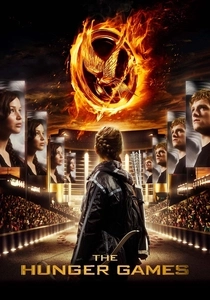
The Hunger Games (2012)
Description: While the film focuses on survival games, food plays a crucial role in the story, from the Capitol's lavish feasts to the scarcity in the districts, illustrating the divide in food access and its use as a tool of control.
Fact: The film series was a massive commercial success, spawning several sequels and a prequel.
 Watch Now
Watch Now 
The Cook, the Thief, His Wife & Her Lover (1989)
Description: While not strictly sci-fi, this film's setting in a futuristic restaurant and its exploration of food as a means of power and seduction make it a unique entry. The opulent dining scenes are as much a character as the people involved.
Fact: The film was directed by Peter Greenaway, known for his visually stunning and provocative works.
 30 Days Free
30 Days Free 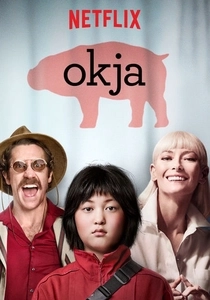
Okja (2017)
Description: A young girl raises a genetically modified "super pig" named Okja, which becomes the center of a corporate conspiracy involving food production. The film delves into ethical questions about food and biotechnology.
Fact: Directed by Bong Joon-ho, known for his genre-blending films, "Okja" was released on Netflix, sparking discussions about the future of cinema distribution.
 30 Days Free
30 Days Free 
WALL-E (2008)
Description: This Pixar film shows a future where humans have left Earth, and food is provided by automated systems on a spaceship. The film subtly critiques consumerism and the future of food production.
Fact: WALL-E was praised for its minimal dialogue, relying heavily on visual storytelling.
 30 Days Free
30 Days Free 
